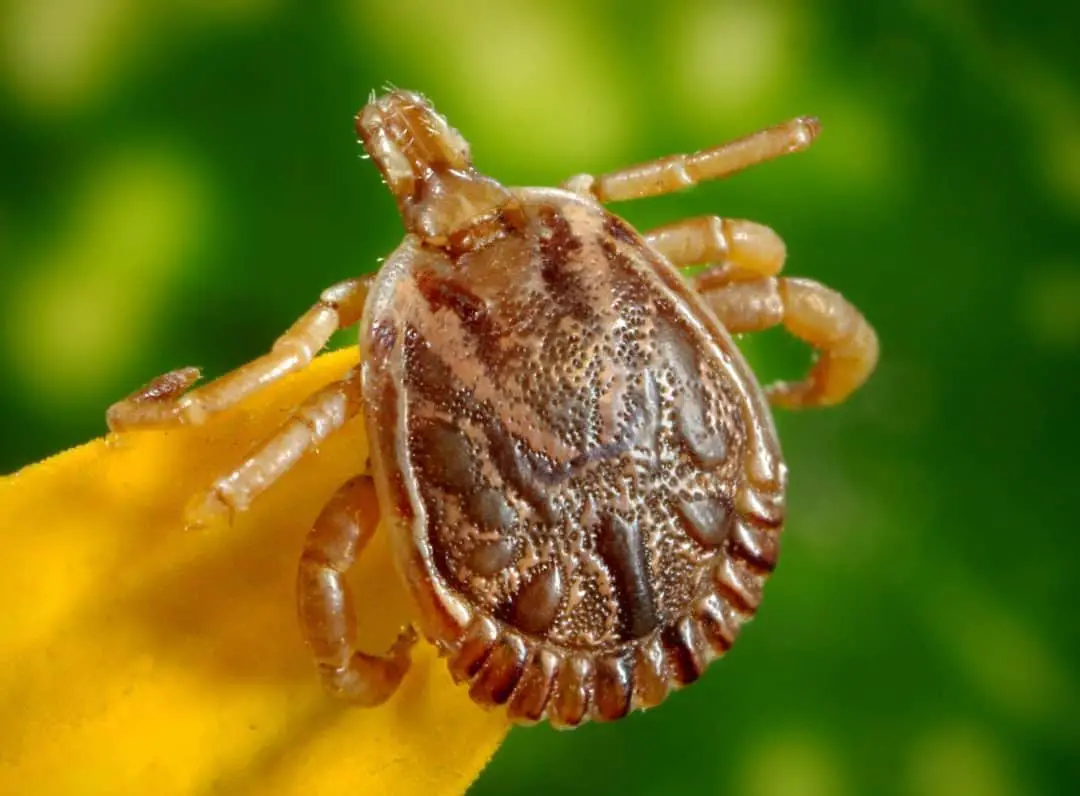In the UK, my boys saw many dogs, but feel very wary in their presence. This is because they were raised in Saudi Arabia. Here, people don’t normally have any contact with dogs at all, except when they see the occasional stray- a runaway guard dog from a farm or industrial area.

Such dogs are usually skittish and appear in the most wretched of states, in contrast to the happy, clean, spoiled well-fed specimens we so often witness in the UK and Europe.
So, I got curious as to why there are so few dogs in Saudi Arabia. The following information is what I learned.
So, Can Muslims Keep Dogs As Pets In The Home?
Islam prohibits Muslims from keeping dogs as pets inside the home. Doing so is Haram and a major sin. However, it does permit their use for hunting, guarding sheep & cattle, houses, industrial units, etc. Ahadith say that Muslims lose two Qirats (portions) of rewards each day for having dogs as pets.
Muslims Learn Not To Like Dogs From An Early Age
From an early age, Muslim teachers and parents tell children that the prohibition stems from the fact that dogs are inherently unclean and impure (Najis).
They indicate that the saliva of the dog contains contagious diseases, the worst being rabies, including many others that can easily infect human beings. For this reason, Islam prohibits Muslims from petting and getting up close and cozy with them.
In fact, in a number of Hadith (prophetic sayings) Prophet Mohammed (SAW) strictly prohibited Muslims from keeping dogs as close companions and warned of punishment in the hereafter for doing so.
However, in recent times, some Muslim scholars and others have challenged these realities. The arguments though are unconvincing.
My goal is not to take sides, rather it is to simply present the main religious reasons for the prohibition of Muslims keeping dogs in the home as pets, to demonstrate that in fact, it is unhealthy to live up close to them at home and to describe Muslim behaviors and attitudes towards these animals.
1. The Rationale In Islam For The Prohibition On Keeping Dogs As Pets In The Home
Dogs Are Inherently Impure (Narjis)
In Islam, dogs are inherently unclean and impure (Najis). This means that when Muslims touch or pet dogs, they may easily come into contact with their saliva, urine, and excrement.
Contact with these discharges automatically causes Muslims to become unclean (Mutanajsoon). Upon touching them, they temporarily fall into a state of impurity. In this state, Muslims are not allowed to perform any of the five daily prayers or religious rituals until they have performed ritual ablutions (Wudhu).
By extension, Islam also considers all dogs, their excrement, urine, and saliva as being permanently impure substances. (Narjis).
No amount of washing or scrubbing will ever make these canines and nor their discharges clean. And, any water that contains even a trace of these three cannot be used for washing or ritual ablutions.
(Click the following to read InsideSaudi’s brief discussion on the difference between unclean or Najis and a state of purity (Taharah) in Islam in the article, What does Narjis Actually Mean? )
)
Quran And Hadith (Prophetic Sayings) Containing Prohibitions On Keeping Dogs As Pets
The Quran
To Show That Angels Do Not Enter Homes That Have Dogs
A dog appears in one of the four stories that comprise Surat Al Qahf, (Surah 18, Verse 18). In the story, the dog is guarding the door outside the entrance of the cave where Allah (SWT) caused 5-7 young men to sleep for 300 years.
In his explanation, (Tafseer), Ibn Katheer states that by causing the dog to sleep in the same way as the men, Allah (SWT) had blessed it. He (Allah) also caused it to attain fame and fortune, since it was in the company of good and righteous men.
However, their dog was lying down asleep, ‘stretching out its forelegs at the entrance’. It was sitting outside at the cave’s entrance, guarding the door, as it was the habit of the dog to do so.
Likely it was a hunting dog or accompanying the King’s cook.
The great Ibn Katheer explains that the dog was in this attitude and NOT inside the cave with the men because angels do not enter a house in which there is a dog present.
Nor do they enter a house where there is an image, a person in a state of ritual impurity (Mutanajsoon), or a disbeliever. Allah (SWT) knows best. Ameen!

The Hadith
There are a number of Hadith (prophetic sayings) addressing the keeping of dogs as pets. In the various verses, Prophet Mohammed (SAW) is quoted as warning the Muslim believers NOT to keep dogs EXCEPT for work purposes.
To Show That Angels Do Not Enter Homes That Have Dogs
1. Abu Talha reports that Prophet Mohammed (SAW) said, ‘The Angels do not enter a house in which there is a dog or a graven image.’
Recorded in Sunan Ibn Majah, Chapter 35, The Book of Dress Hadith:3649
2. Abu Talha reports that he heard Prophet Mohammed (SAW) saying; ‘The Angels (of Mercy) do not enter a house in which there is a dog or a picture of a living creature (a human being or an animal).’
Recorded in Sahih Al Bukhairi Volume 4, Book 54 Hadith:448
To Show What To Do If Vessels Are Licked By A Dog
3. Ibn Mughaffal reported that he had heard Prophet Mohammed (SAW) saying, ‘When the dog licks the utensil, wash it seven times, and rub it with earth the eighth time.’
Recorded in Sahih Muslim 280a, Chapter 27, What Was Licked By A Dog Hadith 119
To Show That Dogs Are ONLY To Be Used For Hunting and As Guards For Sheep, Cattle And Crops
4. Ibn Umar quoted Prophet Mohammed (SAW) as saying, Whoever keeps a dog, two Qirats from his good deeds will be deducted every day.’
Al Bukhairi -Hunting, Slaughtering, Book of Sacrifice and Fishing -Chapter A Pet Dog -Hadith 54808
5. Shuba reported that Prophet Mohammed (SAW) gave a special concession for dogs to be used ‘for looking after the herd, for hunting and (by testimony of Yahya) for watching the cultivated land.’
Sahih Muslim, Book of Purification, 280b Hadith 120
At first, Prophet Mohammed (SAW) states that the punishment for keeping a dog was one Qirat. He later increased it to two Qirats to deter people from keeping more dogs.
Scholars differ in their interpretation of one of two Qirats punishments. They understood that two Qirats would be deducted for a dangerous dog and only one for a harmless one.
Like Calls To Like-Evil Calls To Evil- Shaikh Ibn Uthaymeen
With regard to keeping dogs, this is haraam and is in fact a major sin, because the one who keeps a dog, except those for which an exception has been made, will have two Qirats deducted from his reward every day.
It is by the wisdom of Allah that like calls to like and evil calls to evil.
It is said that the Kafirs, (disbelievers) Jews, Christians and communists in the East and the West all keep dogs, Allah forbid.
Each one takes his dog with him and cleans it every day with soap and other cleansing agents. But even if he were to clean it with the water of all the seas in the world and all the soap in the world, it would never become pure! This is because its impurity is inherent, and inherent impurity cannot be cleansed except by destroying it and erasing it altogether.
Shaikh Ibn Al Uthaymeen Explanation (Sharh) Riyadh Al Saliheen, 4:241
To Show That Dogs Should Be Culled, Then NOT Killed, Then To Be Cared For
6. ‘Abdullah Bin Umar Narrated that Prophet Mohammed (SAW) ordered that the dogs should be killed.’
Sahih Al Bukhairi The Beginning of Creation Volume 4, Book 54, Hadith:540& Many Others
Later Hadiths  show that Prophet Mohammed (SAW) changed his mind on the killing of dogs. He ordered the killing of dogs except for hunting, guarding sheep and fields. After, he abrogated the order to kill dogs and ordered that only rabid and black dogs be culled.
show that Prophet Mohammed (SAW) changed his mind on the killing of dogs. He ordered the killing of dogs except for hunting, guarding sheep and fields. After, he abrogated the order to kill dogs and ordered that only rabid and black dogs be culled.
There is also Hadith showing dogs are not being killed, rather be cared for.
7. Hamza Bin Abdullah quotes his own father saying that in the time of Prophet Mohammed (SAW) dogs used to pee as they passed through the mosques. However, the Muslims never to sprinkle water on the fallen urine.’
Sahih Al Bukhari Volume 1, Book 4 Hadith:173
8. Abu Hurayrah narrated that Prophet Mohammed (SAW) had said, ‘A man saw a dog eating mud from (the severity of) thirst. So, that man took a shoe (and filled it) with water and kept on pouring the water for the dog till it quenched its thirst.
So Allah approved of his deed and made him to enter Paradise.’
Sahih Al Bukhari Volume 1, Book 4 Hadith:173
Summary
In Islam, keeping dogs as pets is prohibited (Haram) due to their impure nature. In Islamic history, they were and still are used as guard dogs, for herding, and on the farm, but they should not live side by side with human beings in the same living space.
In his time, Prophet Mohammed (SAW) ordered that dogs be culled. Later, these orders were abrogated, after which he allowed dogs to exist for practical (work) purposes.
Keeping dogs as pets is Haram for Muslims, but likewise, Islam orders us to show them kindness and mercy.

2. Dogs Can Infect Us With More Than 100 Diseases
How Do We Catch Dog Diseases?
Vets say that today, the chances of catching diseases from a domestic dog in the modern home are low. If the dog is cleaned, wormed, well cared for with regular visits to a vet, they can but generally don’t cause us much harm.
However, for good reason, most people are very afraid that dogs will bite us. Any diseases they might be carrying exist in their saliva. A bite can break the skin, and germs can enter our bodies via their saliva.
Even touching dog saliva, dog skin, soil, water, surfaces, or the environment where dogs live can lead to serious illness in other animals and in humans.
Dog Bite Statistics
In the US, dogs bite about 4.5 million people every year, and as a result, 40 people die .
.
350,000 people have to go to emergency rooms and 750,000 need some form of medical attention. Dog bites cost the country more than $1 billion, annually.
Also, dogs slobber. As they drool, their saliva can dribble on articles and surfaces in our homes. As we touch these surfaces, we can pick up their saliva and then touch our faces, eyes, and mouths.
Kids are especially vulnerable.
The germs we pick up from dogs can cause minor infections also, and some very serious illnesses. Symptoms include gut pain, severe diarrhea, vomiting, organ failure, and death.
The following is a list of the most common diseases we can catch from dogs and the symptoms.
(Best read on a horizontal mobile screen)
| Disease | Infection | Results |
| Brucellious bacteria | Animal Contact Drinking raw milk | Flu-like symptoms Damage to reproductive organs Miscarriages |
| Campylobacteriosis bacteria | Contact With Feces Food, Water | Nausea, Diarrhea |
| Capnocytophaga bacteria | Touching Dog Mouth | blisters swelling pain around bite fever diarrhea vomiting headache muscle or joint pain |
| Cryptosporidiosis parasite | Contact feces food or surfaces | profuse, watery diarrhea cramping abdominal pain nausea vomiting |
| Flea tapeworm parasite | Swallow a flea | Crawling worms in anus/poop |
| Echinococcosis parasitic tapeworm | Contact dog or feces Swallow eggs | Invasive cysts Liver and lungs |
| Giardia parasite | Feces, surfaces water, soil | severe diarrhea, gas gut pain nausea vomiting |
| Hookworms worms | Skin contact infected soil/sand | Worms breakout under the skin intestinal inflammation |
| Leptospirosis bacteria | Contact with urine soil/water | high fever headache chills, muscle aches vomiting jaundice conjunctivitis (red eyes) abdominal pain diarrhea, or a rash. can cause liver and kidney failure hemorrhagic pneumonia death. |
| Staphylococcus aureus bacteria | Touching dogs | No symptoms can spread to the lungs & bloodstream death |
| Bubonic Plague bacteria | Flea bites touching sick/dead dogs | painful, swollen lymph nodes high fever chills headache weakness. septicemic plague plague pneumonia can cause more severe symptoms. |
| Rabies virus | Contact saliva dog scratches | death |
| Ringworm fungal parasite | Touching dog surfaces | itching ring-shaped rash redness scaling skin cracking hair fall out discolored thick nails |
| Roundworm parasite toxocariasis | Contact feces ingested eggs | (eye) larvae in eye vision loss eye inflammation retina damage (organs) liver, lungs nervous system fever, fatigue, wheezing abdominal pain |
| Salmonellosis bacteria | Contact dogs, food water, surfaces | diarrhea, fever abdominal cramps hospitalization |
| Sarcoptic mange parasitic mite | Contact dogs | No infestation Minor skin irritation |
| Tickborne Diseases Lyme Tularemia Ehrlichiosis Babesiosis | Tick bites (Dog Saliva) | fever chills body aches rash |


How To Protect Yourself From The Diseases That Dogs Carry
1. Vets recommend that you wash your hands and sanitize your environment to kill the germs and parasites that dogs carry.
This means after you handle your dog, you wash your hands. After you feed your dog, you wash your hands. After you care for, clean up and work in the environment where dogs live, you wash and sanitize your hands.
2. Take your dog to the vet regularly for check-ups, de-worming, and routine maintenance.
3. Keep your dog in a kennel away from your usual living environment. House them in an open, fenced area and in a warm, dry environment. Provide dogs with regular food and water. Always be sure to clean its poop on a regular basis.
Never cage or chain up your dog for long periods. It is Haram. Dogs need to exercise and roam. They are social creatures who love the company of other dogs.
4. For obvious, NEVER, NEVER let a dog lick your face! Yuck!
3. Most Muslims Are Hostile Towards Dogs Or Simply Don’t Care At All
In Saudi Arabia and the rest of the Muslim world, people do not keep dogs as pets in the home. Since people consider them to be impure (Narjis), they have a low opinion of the few that do.
However, like in Western countries, some dog owners here love and care well for their dogs. Since the majority of people live in apartment buildings, these owners usually keep small, house-trained cute breeds like terriers or poodles .
.
Thankfully, dog owners are not very many.
The greatest majority of dogs you do see are the mongrel types working as guard dogs on homesteads, farms and commercial areas.
The Problem Of Stray Dogs
However, in the Arab world, there are thousands of stray dogs roaming the city streets. At nighttime, they pack together and scavenge the city dumpsters in search of food.
Because of stray dogs, the city streets in countries like Egypt and Morocco are dangerous. Packs of dogs will attack people if they are walking unaccompanied during the day, and especially at night.
Read about four stray dogs who killed a four-year-old girl in Riyadh as she stepped out of her home.
as she stepped out of her home.
In my time in Alexandria, Egypt, I used to carry a large lump of wood with me every morning on my way to the mosque for Fajr morning prayer day to fend off attacks by packs of dogs that would routinely try to harass me.
Read about two Saudi boys convicted for repeatedly running over a stray dog in their desert jeep until it died .
.
From time to time, the Egyptian government culls the dogs, but eventually, more of them return.
Why So Many Strays?
Likely, the strays are runaways or abandoned. I suspect that most have escaped from their original owners who use them to guard commercial properties, large houses, and farms.
In those particular environments, they will be enclosed or chained to a post for 24 hours a day and with minimum contact with their owners.
So, it is a kind of mercy for them if they manage to get free.
How Muslims Treat Stray Dogs
People in the Arab world will feed feral cats, but are hostile and cruel towards stray dogs.
This is because these starved, flea-bitten animals often poo outside people’s doorways and on public walkways. They bark, yap, howl all night and fight ferociously all day and night.
In the evening time, you will see them hungrily crowded about public dumpsters savaging for food scraps. They bark at people as they approach to throw their household waste, chase and harass people in cars.
The thousands of stray dogs are a real public nuisance. There are no animal shelters and people are not especially interested in rescuing stray animals.
In this case, because of the big numbers, killing them does seem to be the most humane option.
People often shoo dogs away, beat, or simply ignore them. No one will go out of his way to feed a stray dog, to pet or befriend it.
You will often see people and groups of teenagers throwing rocks and sticks at groups of roaming dogs and cats. However, there are some exceptions.
In his article, Dr Ayoub M. Banderker complains that Muslims lose interest in dogs and either abandon or have them put down.
He clearly loves animals and details well how Muslims should treat dogs, but he fails to address the issue of strays.
but he fails to address the issue of strays.
Useful Links And References
Are Muslims Allowed To Keep Dogs?-Zakir Naif
What does Narjis Actually Mean? -insidesaudi.com
-insidesaudi.com
Sahih Bukhairi -Book 54, Number 448-iium.edu.my
Ruling On Being Bitten By A Dog-Book Of Purification-Sahih Muslim-Sunnah.com
Prohibition on keeping dogs except those exempted by sharee’ah-Islam Q& A
The Meaning of One Qirat Reward?-Hadith Answers
Dogs Are NOT Islamically Impure-Egyptian Streets
Dogs In Ancient Islamic Culture-blog.oup
Surah Al Qahf Verse 18-Quran.com
Tafseer Ibn Kathir-Quran Surah 18 Verse 18-Alim.org
Sunan Ibn Majah-Chapter 35, Book of Dress-Ahadith
Sahih Al Bukhairi- Volume 4, Book 54 Hadith:448
Sahih Muslim 280a, Chapter 27, What Was Licked By A Dog Hadith 119
Various Hadith Prohibiting Keeping Dogs Except For-Sunnah.com
Medical Hazards From Dogs-NCBI
Islam And The Killing Of Dogs-Call To Monotheism
Dog Bite Statistics-Dog Bite Law
Dogs In Islam-Animals In Islam
Smallest Dog Breeds-American Kennel Club
Saudi Arabia: 5 stray dogs kill 4-year-old girl-Gulf News
Related Questions
1. Can I Have A Dog As A Pet If I Keep It Outside The Home In The Garden? In this case, the Shafi madhab says it is prohibited (Haram) whilst the Maliki madhab says it is permitted (Halal) but discouraged (Makrooh) to keep indoors. See reference.
2. Are Muslims Permitted To Touch A Dog? Muslims are encouraged NOT to pet and cuddle dogs. However, there is no prohibition about touching them. However, if they come into physical contact with dog saliva, urine, or excrement, Prophet Mohammed (SAW) advised them to wash their hands with water 6 times followed by 1 time with soil. As is the case with all animals, handwashing, and sterilization are advised after handling them.
3. Which Animals Can Muslims Keep As Pets In The Home? Muslims can keep fish, birds, cats in the home as long as they feed, treat, care for them well. The saliva of cats is not impure (Narjis) However, dogs are NOT permissible!
4. Can Muslims Keep A Rabbit As A Pet Inside The Home? No! Rabbits bred in captivity need to come out of their cages to eat and exercise. Inside the home, they will eat the furniture and belongings. If they are released into the wild, they lack survival skills and will die. In this case, slaughter and eat them or give them to someone with an open outdoor space.
See Islamic Fatwa owning then disposing of a pet rabbit.
owning then disposing of a pet rabbit.
